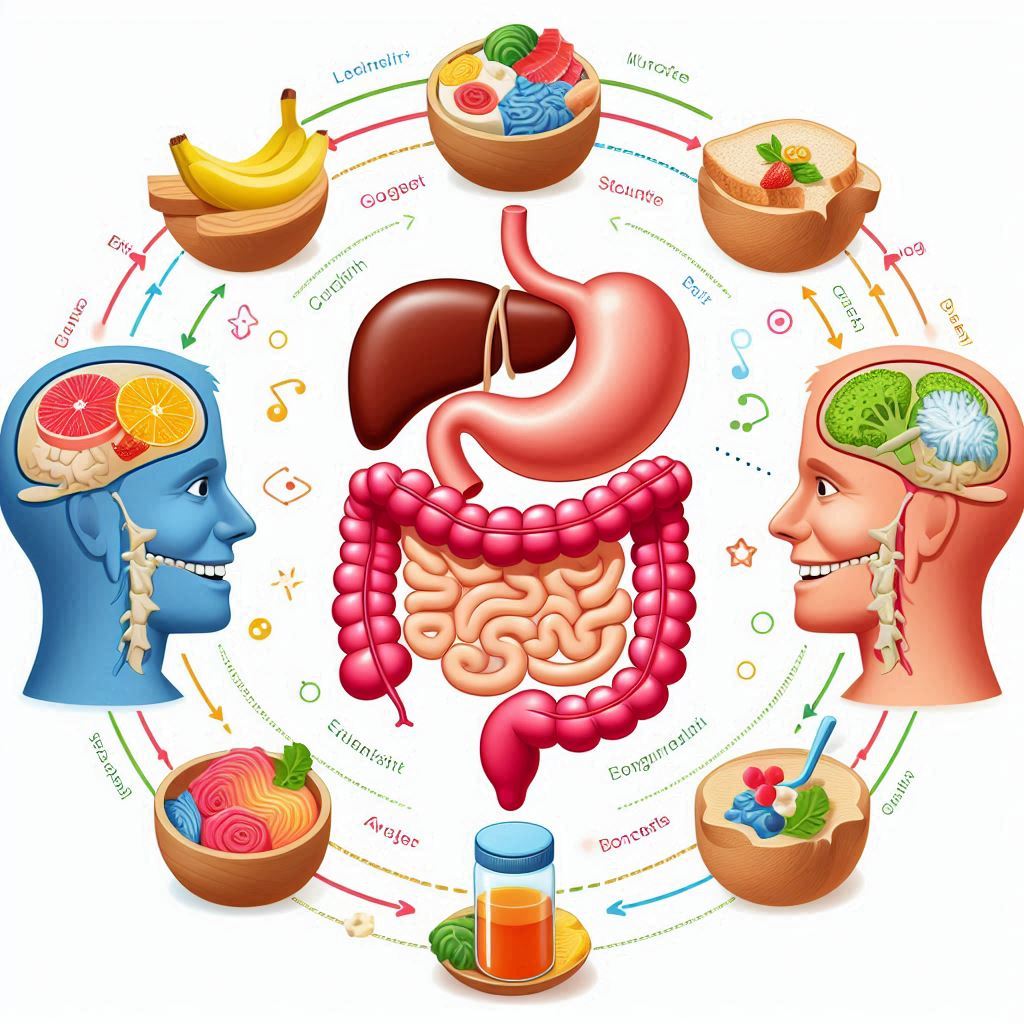
Imagine transforming your relationship with food, reducing stress, and improving your digestion—all by simply being more present during meals. This is the power of mindful eating, a practice gaining attention for its profound mental and physical health benefits.
Mindful eating has become a buzzword lately, but do you understand what it truly means and its importance? Simply put, mindful eating is about being present when you’re eating. It involves fully experiencing the flavors flowing in your mouth and focusing solely on your meal without distractions.
This means not talking on the phone, scrolling through videos, or multitasking while eating. Instead, it’s about paying attention to how much chewing you’re doing and absorbing everything without judging.
It may seem impossible with everyone caught up in the rat race and the never-ending busyness, but could it be possible to eat without distraction in this era? Let’s dive deeper.
What is Mindful Eating?
- Being Present Mindful eating means being fully present with your food. It’s about experiencing your food’s tastes, textures, and smells and savoring each bite.
- Avoiding Distractions: During meals, avoid distractions like phones and TVs. Focus solely on the act of eating.
- Chewing and Digestion: Pay attention to how much you chew your food. Thorough chewing aids in better digestion and fully allows you to appreciate the flavors.
- Non-Judgmental Awareness: Absorb your eating experience without judgment. Accept your food and eating habits without labeling them good or bad.
Why is Mindful Eating Important?
- Improved Digestion: Eating slowly and thoroughly chewing food enhances digestion. This allows for better breakdown and absorption of nutrients.
- Better Appetite Regulation: By tuning into your body’s hunger and fullness signals, mindful eating helps prevent overeating and promotes a healthier relationship with food
- Enhanced Enjoyment of Food: Being present with your food allows you to enjoy it more, making your meals more satisfying.
- Positive Impact on Gut Health: Mindful eating can change our gut microbiota. Studies, such as those published in the journal “Nutrients,” suggest that mindful eating can lead to a more balanced and diverse gut microbiome, which is crucial for overall health.
- Reduced Stress and Emotional Eating: Mindful eating reduces stress and emotional eating by encouraging a conscious approach to food. This helps people make healthier choices and manage stress better.
Practical Tips for Practicing Mindful Eating
Create a Calm Environment: Set up a peaceful eating space without distractions. Turn off your phone and TV, and focus on your meal.
Eat Slowly: To fully enjoy the flavors of your food. Take your time to chew each bite thoroughly. This helps with digestion and allows you to enjoy the flavors of your food fully.
Tune Into Your Body: Pay attention to your hunger and fullness cues. Eat when you’re hungry and stop when you’re satisfied.
Appreciate Your Food: Before you start eating, take a moment to appreciate the appearance, smell, and taste of your food.
Reflect on Your Experience: After your meal, take a moment to reflect on how you feel. Notice any changes in your mood or physical sensations.
How Mindful Eating Affects Gut Health

Mindful eating is closely connected to gut health through its influence on the gut microbiota, the community of microorganisms residing in the digestive system. Here’s how they are interconnected:
- Slower Eating and Digestion: Mindful eating involves eating slowly and thoroughly chewing food, which helps initiate digestion in the mouth. This process allows for better food breakdown and easier absorption of nutrients. Eating more slowly can reduce digestive issues such as bloating and indigestion. Proper chewing and slower eating allow the stomach to signal when it is full, preventing overeating, which can lead to digestive discomfort.
- Gut-Brain Axis: The gut-brain axis is a communication network linking the gut and the brain. Mindful eating positively affects this axis by reducing stress and promoting calm during meals, which can improve digestion and gut function. Mindful eating can enhance mood and mental well-being by reducing stress and anxiety around eating. This benefits the gut microbiota, as stress negatively affects gut health by altering the microbiota composition.
- Impact on Gut Microbiota: Mindful eating encourages healthier food choices and portion control, promoting a balanced diet rich in fiber and fermented foods. These foods support a diverse and balanced gut microbiota, which is crucial for overall health. Studies published in journals like “Nutrients” indicate that mindful eating can positively change gut microbiota. By paying attention to what and how you eat, you are more likely to consume foods that support gut health, such as fruits, vegetables, whole grains, and fermented foods
Choosing Foods That Support Gut Health
- Fiber-Rich Foods: Foods rich in fiber, such as fruits, vegetables, legumes, and whole grains, are fantastic for your gut. Fiber supports a greater diversity of gut bacteria, a key marker of gut health.]
- Fermented Foods: Items like yogurt, kefir, sauerkraut, and kombucha introduce beneficial bacteria, known as probiotics, to your digestive system. Regular consumption of these foods can positively affect gut flora and overall health.
- Avoiding Processed Foods: Highly processed foods often contain additives, preservatives, and high sugar levels that disrupt the microbiome balance. A diet high in processed foods has been linked to decreased beneficial gut bacteria and increased intestinal permeability, often called ‘leaky gut.’
The Role of Stress Management in Mindful Eating
The relationship between stress, eating behaviors, and gut health is complex. When stressed, your body’s fight-or-flight response can disrupt digestive processes and gut microbiome balance, leading to various gut issues. Stress affects more than your mind; it also has concrete effects on your physical well-being. Cortisol, the stress hormone, impacts gut permeability and inflammation, potentially exacerbating gastrointestinal conditions.
Strategies like deep breathing exercises, meditation, and mindful walking can help manage stress. By calming the mind, you can make more considered choices about what and how you eat, leading to calmer digestion and a happier gut. Clinical studies show that mindfulness meditation can improve symptoms of irritable bowel syndrome and inflammatory bowel diseases.
Implementing and Maintaining Mindful Eating Habits
Start with small, manageable steps to bring mindful eating into your life. Choose one or two habits to focus on, such as chewing your food well or savoring the flavors, and build from there.
Frequent check-ins with yourself to reflect on what’s working and what isn’t are vital. Flexible eating strategies can lead to better long-term health outcomes.
Embrace mindful eating as a transformative journey rather than a destination. It’s about discovering a deeper connection with your food and appreciating it as a source of nourishment—a practice that can greatly enhance your gut health and overall well-being.
Conclusion
Mindful eating is more than just a trendy term; it’s a practice that can significantly enhance your overall well-being. Being present during meals, avoiding distractions, and appreciating the sensory experience of eating can improve digestion, regulate appetite, and positively influence gut health.
Embracing mindful eating can lead to a healthier relationship with food and a happier, more balanced life.
What are your experiences with mindful eating? Do you have any tips


hello your article effectively introduces mindful eating, emphasizing its importance and practical benefits such as improved digestion and stress management.
Additionally, it provides valuable insights into how mindful eating can enhance our relationship with food, promote healthier eating habits, and contribute to overall well-being. The practical tips and strategies you offer make it accessible and easy for readers to incorporate mindful eating into their daily lives. Overall, it’s a well-rounded and informative piece highlighting the significant impact of mindful eating on physical and mental health.
Hello Lewis
Thank you! I’m glad you found the article helpful. Mindful eating offers many benefits, and I hope the tips make it easier for readers to incorporate it into their lives.
This article beautifully highlights the transformative power of mindful eating! It’s fascinating how being present during meals can improve digestion, reduce stress, and enhance our overall relationship with food. I particularly appreciated the connection between mindful eating and gut health, especially the role of the gut-brain axis and the impact of stress management.
Cheers Graham
Hi Graham,
I’m glad you enjoyed the article! It’s impressive how mindful eating can transform digestion, reduce stress, and improve our relationship with food. The connection between mindful eating and gut health, especially through the gut-brain axis and stress management, is fascinating.